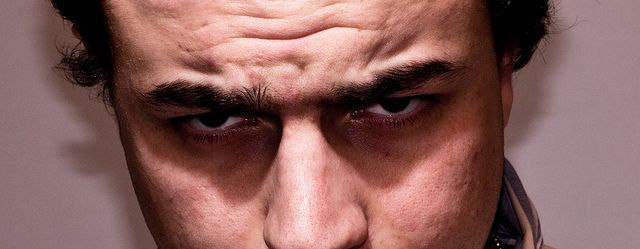Why Do We Enjoy Seeing Those We Envy In Pain? It's A Biological Response To See 'Objects Of Jealousy' Hurt

The intense rivalry between the Boston Red Sox and New York Yankees is well known in baseball circles. So when one researcher from Princeton University wore her Red Sox cap to a Yankees game, she was begging to be heckled by the outspoken Yankees fans — and that’s what happened. The heckling inspired her to investigate the reasons why some people gain happiness at other people’s expense, and found that it’s simply the biological response we all have to the pain of those we envy.
Known as “Schadenfreude” — enjoyment resulting from the troubles of others — the researchers found that people smile more when someone they envy goes through difficult circumstances. “Jealousy and envy are highly correlated,” Susan Fiske, co-author of the study and the Eugene Higgins Professor of Psychology and Public Affairs at the Woodrow Wilson School, said in a statement. “When we ask people on surveys who is envied in American society, they report the same groups: objects of jealousy. This is all very much based on stereotypes.”
The study’s goal was to determine who these envied groups consist of, what causes people to feel like they have the right to harm these groups — whether physically or emotionally — and why people feel that it’s okay to inflict this harm within the context of sports. “We asked ourselves: what is it about rivalries that elicit a harmful response? And can we predict who will have this response?” lead researcher, Mina Cikara, the subject of the Yankee’s game heckling, and an assistant professor at Carnegie Mellon University, said in the statement.
Several Experiments On Schadenfreude
The researchers performed several experiments to assess people’s propensity to inflict harm on those they envy. The first one looked at how enjoyable it was to see an envied person experience difficulty. Participants were shown several photos of different people, which were then paired with different everyday situations.
The photo subjects ranged from elderly people, who provoked pity, to drug addicts (disgust), and rich professionals (envy). The situations included positive, negative, and neutral events, including “won five dollars” and “got soaked by a taxi.” An electromyogram (EMG) monitored the participants’ faces for the degree at which they were smiling when they were asked how they felt about the situations. “We found that people did smile more in response to negative than positive events, but only for groups they envied,” Fiske said in the statement.
The next experiment measured participants’ brain activity and self-reported happiness. Using the same photos and situations from the first experiment, they asked participants to rate, on a scale from one to nine, how they felt about the events, with one being “extremely bad” and nine being “extremely good.” Their responses were the same as before — they felt better about the person they envied being harmed. Surprisingly, a follow-up survey conducted two weeks later also found that these participants were willing to hurt those they envied with an electrical shock in order to spare others.
Now that the researchers knew that affluent people were more likely to be envied, they looked into how that person’s behavior could affect another person’s envy and subsequent intent to cause harm. They put the banker in multiple situations: he was a pro-bono consultant, he used his work bonuses to buy drugs, he was unemployed but still dressed to go to work, and finally, he was only himself — employed and making money like any other banker. The participants once again rated the typical banker as the least likeable.
For the last experiment, the researchers called on the most dedicated Yankees and Red Sox fans to watch videos of the opposing team striking out, scoring runs, and completing skillful plays, while being monitored by functional magnetic resonance imaging (fMRI). As expected, they all reacted positively to their teams doing well. When they were shown videos of the opposing team against the neutral Baltimore Orioles, participants showed pleasure in seeing the opposing team losing rather than winning.
“We used a sporting event because it’s something you can bottle,” Fiske said in the statement. “Rabid fans are passionate about it, and we were looking for an intergroup phenomenon that reaches people where they live. This is certainly it. But it’s important to remember that this study isn’t just about sports teams. It’s about intergroup rivals of more consequence.”
Schadenfreude in Other Parts Of Society
Earlier this year, there was an explosion of Schadenfreude when the late prime minister of the U.K., Margaret Thatcher died. The Wizard of Oz song, “Ding Dong! The Witch is Dead” went up to number nine on the iTunes best-seller chart, Facebook pages celebrating her death expressed happiness, and some Londoners posted a sign reading “Margaret Thatcher’s dead LOL” on the front of a movie theater.
Other research has also shown that people’s brains become more active in areas associated with reward and emotion regulation when they watch someone they don’t like experience pain, as opposed to someone they find likeable — with whom they also empathize less for. This is because it was important to ensure the enemy was “down for the count,” the researchers said.
Source: Cikara M, Fiske S. Their pain, our pleasure: stereotype content and schadenfreude. Annals of the New York Academy of Sciences. 2013.
Published by Medicaldaily.com



























